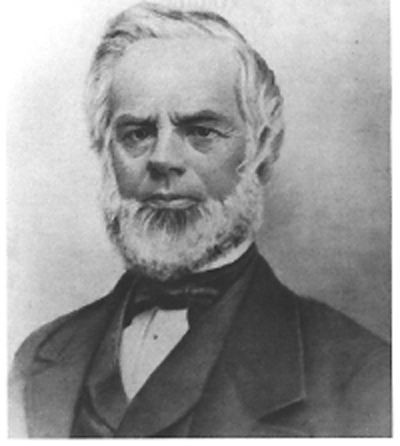The views expressed in our content reflect individual perspectives and do not represent the authoritative views of the Baha'i Faith.
Do you believe your thoughts can change the world?
The decades following World War I have witnessed the emergence of that idea, called “positivity,” as a panacea for manifesting goals, resolving setbacks, restoring health or finding happiness.
This phenomenon first emerged in the 19th Century through Phineas Parkhurst Quimby–considered the father of a philosophy called “New Thought”–and his apostles Mary Eddy Baker, the founder of the Christian Science church, and William James, the first American psychologist. Together they espoused the idea that the spiritual force of a person’s thought can impact directly on the material world. Whether a person found himself in dire straits or good fortune, he or she only had to look within for the causes. Outward circumstances being thus controlled by the individual, the key to achieving desirable outcomes involved simply thinking positively.
This philosophy gained increasing currency from such best-sellers as Napoleon Hill’s Think and Grow Rich, published in the 1930s. It reached an even higher peak of popularity with Rhonda Byrne’s The Secret in 2006, accompanied by a plethora of publicity at bookstores, on television shows and from scores of motivational coaches. Byrne and other authors portrayed material gratification as depending less on the sweat of one’s labor than on the attitude of one’s mind.
This philosophy has had some significant consequences, and aberrations have proliferated. Business and political leaders refuse bad news from lower staff, fearing “negativity” and its consequences. Employers demand “positive mental attitudes” in the workplace. Managers tout multi-tasking as essential to longevity. Downsized workers hear that their unhappy fate can be reversed by forced optimism. Deficit financing is accepted as the cost of doing business. These distortions of reality stem from the theory of positivity–thinking that we can accomplish anything, if we just concentrate our thoughts on a desired result.
Many thinkers and writers, like Barbara Ehrenreich in her book Bright-Sided, have now concluded that positivity, rather than guaranteeing desired outcomes, may actually compromise people’s ability to anticipate real threats or set realistic goals and diligently work toward them to achieve excellence.
The Baha’i teachings laud the importance of setting goals, whether through consultation or reflection. A firm foundation of goal setting or wealth acquisition requires that:
…man should know his own self and recognize that which leadeth unto loftiness or lowliness, glory or abasement, wealth or poverty. Having attained the stage of fulfilment and reached his maturity, man standeth in need of wealth, and such wealth as he acquireth through crafts or professions is commendable and praiseworthy in the estimation of men of wisdom, and especially in the eyes of servants who dedicate themselves to the education of the world and to the edification of its peoples. – Baha’u’llah, Tablets of Bahau’llah, p. 34.
Baha’is try to set goals, both personal and societal, by marshalling the facts surrounding a problem, praying and reflecting on the problem, arriving at a decision, determining to carry through with the decision, trusting that the process will provide solutions–and then taking action.
Both Napoleon Hill and Rhonda Byrne preached that fixating daily on a monetary goal or problem should inspire solutions to somehow appear. But Baha’is believe that isn’t enough—instead, effort is required. Visualization or prayer alone will not produce results without action.
According to Abdu’l-Baha, the concentration of one’s attention on a single point can produce astonishing results—as long as action follows attention. Concerning the appearance of solutions, he said:
In any and all endeavors, divine confirmation is wholly dependent on action. Persevere, so that the hosts of divine bounty may assist you. – quoted in Memories of Nine Years in Akka, p. 334.
No one can avoid the accidents and troubles of life, regardless of their attitude of mind or their “positive” outlook. Nor can everyone be a general in the army, materially successful, or brilliant in discoveries. Abdu’l-Baha never considered these real or imagined deficiencies as blameworthy. In recognizing human frailties, he taught us that:
…some souls are ignorant, they must be educated; some are sick, they must be healed; some are still of tender age, they must be helped to attain maturity. – Selections from the Writings of Abdu’l-Baha, p. 18.
The Baha’i Faith teaches that unity, love and compassion will heal the ills of humanity. So while goal setting and action are essential for bringing into the physical world what we conceive within our inner selves, every outcome should ultimately benefit high and low alike.

















Comments
Sign in or create an account
Continue with Googleor